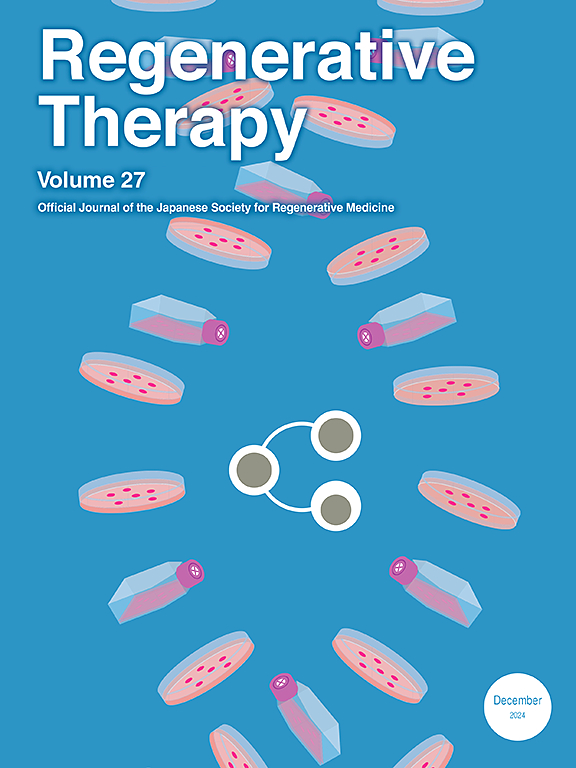Ex vivo expansion of corneal endothelial cells enabled by small molecule inhibitors of LATS kinase
IF 3.5
3区 环境科学与生态学
Q3 CELL & TISSUE ENGINEERING
引用次数: 0
Abstract
Introduction
Transplantation of expanded corneal endothelial cells (CECs) has been regarded as a promising approach for treating corneal diseases caused by CEC damage or dysfunction. However, an efficient method for expanding CECs remains inadequately established.
Methods
We examined whether small molecule inhibitors of large tumor suppressor kinase (LATS) promote the proliferation of CECs. We also evaluated the expression of functional markers in CECs treated with the inhibitors.
Results
We found that LATS kinase inhibitors enhance the cell density of bovine CECs ex vivo. CECs that were expanded in the presence of these inhibitors exhibited increased nuclear translocation of yes-associated protein (YAP) and upregulated expression of YAP-regulated genes. Furthermore, we observed that YAP was essential for promoting cell proliferation. Notably, the inhibitors also increased the density of primary human CECs. Expanded human CECs expressed CEC functional markers, including Na+/K+-transporting ATPase subunit alpha-1 (ATP1A1), Zonula occludens-1 (ZO-1), and N-cadherin; they showed upregulated expression of YAP-regulated genes.
Conclusions
Collectively, these findings support the development of efficient culture techniques for CEC expansion and may facilitate the advancement of therapeutic strategies for CEC-associated diseases.
LATS激酶小分子抑制剂使角膜内皮细胞体外扩增
扩大的角膜内皮细胞(CECs)移植被认为是治疗由CEC损伤或功能障碍引起的角膜疾病的一种很有前途的方法。然而,扩大cec的有效方法仍未充分确立。方法观察大肿瘤抑制激酶(large tumor suppressor kinase, LATS)小分子抑制剂是否促进CECs增殖。我们还评估了用抑制剂治疗的CECs中功能标志物的表达。结果LATS激酶抑制剂可提高体外牛CECs细胞密度。在这些抑制剂存在的情况下,cec的扩增表现出yes相关蛋白(YAP)的核易位增加和YAP调控基因的表达上调。此外,我们观察到YAP对促进细胞增殖至关重要。值得注意的是,抑制剂也增加了原发人CECs的密度。扩增的人CEC表达CEC功能标记物,包括Na+/K+转运atp酶亚基α -1 (ATP1A1)、封闭带-1 (ZO-1)和n -钙粘蛋白;它们表现出yap调控基因的上调表达。综上所述,这些发现支持了CEC扩展的高效培养技术的发展,并可能促进CEC相关疾病的治疗策略的发展。
本文章由计算机程序翻译,如有差异,请以英文原文为准。
求助全文
约1分钟内获得全文
求助全文
来源期刊

Regenerative Therapy
Engineering-Biomedical Engineering
CiteScore
6.00
自引率
2.30%
发文量
106
审稿时长
49 days
期刊介绍:
Regenerative Therapy is the official peer-reviewed online journal of the Japanese Society for Regenerative Medicine.
Regenerative Therapy is a multidisciplinary journal that publishes original articles and reviews of basic research, clinical translation, industrial development, and regulatory issues focusing on stem cell biology, tissue engineering, and regenerative medicine.
 求助内容:
求助内容: 应助结果提醒方式:
应助结果提醒方式:


